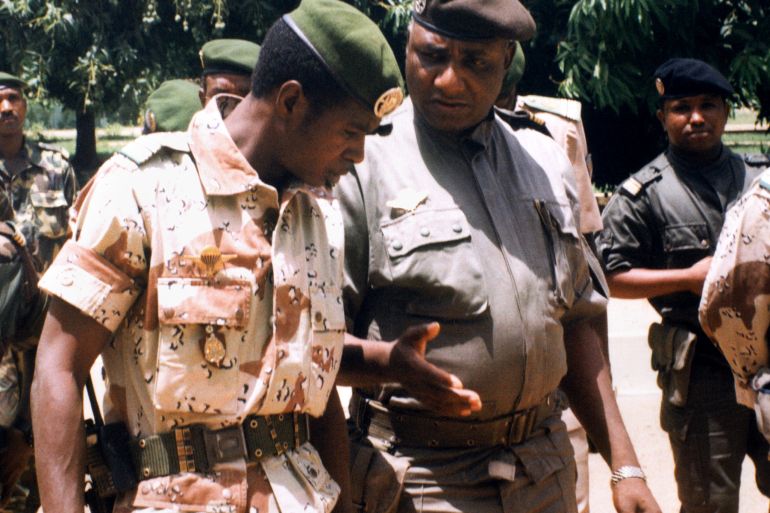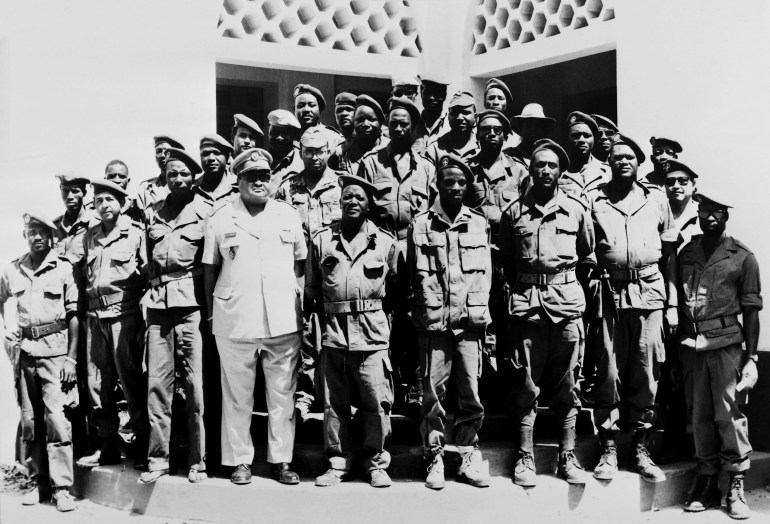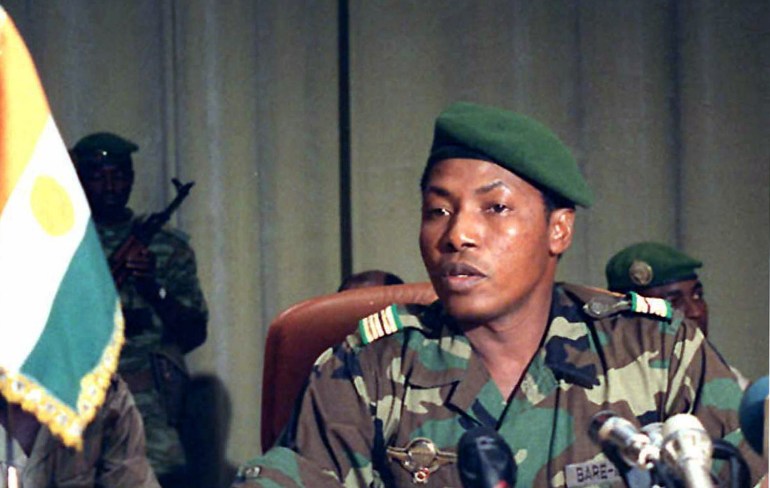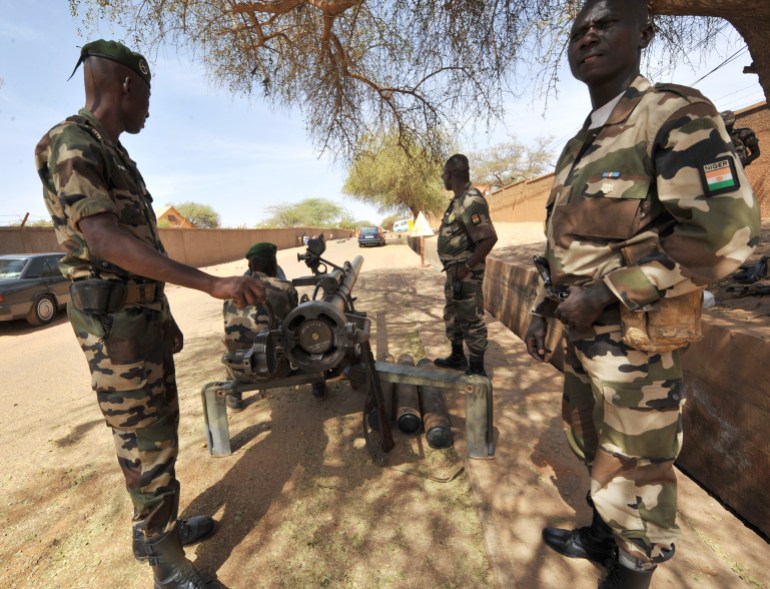Timeline: A history of coups in Niger
Wednesday’s military takeover marks the fifth coup in the West African nation’s history since it gained independence from France in 1960.

Niger’s President Mohamed Bazoum has been ousted from office by a group of soldiers hours after members of his guard detained him at the presidential palace in the capital, Niamey, throwing the country into political turmoil.
Colonel Amadou Abdramane, spokesperson of the group, said on Wednesday that defence and security forces had decided to “put an end to the regime that you know due to the deteriorating security situation and bad governance”.
Keep reading
list of 3 itemsSoldiers in Niger claim to have overthrown President Mohamed Bazoum
‘Coup attempt’ in Niger: Here’s what we know so far
Abdramane said Niger’s borders were closed, a nationwide curfew declared, and all institutions of the republic suspended.
However, Bazoum pledged to safeguard “hard-won” democratic gains in Niger, saying on the social platform X, formerly known as Twitter: “All Nigeriens who love democracy and freedom would want this.”
The military takeover is the fifth successful coup in the West African nation’s history since it gained independence from France in 1960, with other unsuccessful attempts in between.
Here are all the times the military overthrew the government in Niger:
1974
In April, Lieutenant Colonel Seyni Kountche leads a military coup, ending Hamani Diori’s 14-year rule, suspending the country’s constitution and dissolving the National Assembly.
Kountche forms the 12-member Supreme Military Council (SMC) which takes control of government affairs.
According to some reports, about 20 people were said to have been killed in the ordeal.

1996
Army officers stage a coup overthrowing President Mahamane Ousmane and Prime Minister Hama Amadou in January, saying a political deadlock had threatened economic reforms, incurring the anger of former colonial power France.
Lieutenant Colonel Ibrahim Bare Mainassara, the armed forces chief of staff, becomes the country’s leader, saying the aim of the coup was to allow a new start and not to end multiparty democracy.

1999
Mainassara is killed in April by dissident soldiers in an ambush at Niamey airport, paving the way for a third coup in the country’s tumultuous history.
Daouda Malam Wanke, the commander of the presidential guard, takes power before announcing that there will be an elected president and a return to civilian rule by 2000.
Mamadou Tandja wins Niger’s presidential election, defeating Mahamadou Issoufou, a former prime minister. International observers called the election that followed the 1999 coup generally free and fair.
2010
A group of military leaders calling themselves the Supreme Council for the Restoration of Democracy (CSDR), led by General Salou Djibo, captures Tandja and his ministers after a gun battle.
The constitution is suspended and all state bodies dissolved. The military government promises to turn Niger into “an example of democracy and of good governance” after accusing Tandja of amending the constitution.
“What we did was in the best interest of Niger … we ask you to stay calm, we’re here for you, we’re listening and we assure you that we will never let you down,” one of the coup leaders said.
Political tensions had been rising in Niger since Tandja dissolved the parliament in 2009 and extended his own mandate following a referendum beyond a second term.
New legislative elections are held in early 2011, with Issoufou winning in a presidential run-off.

2023
On Wednesday, July 26, members of the presidential guard, led by General Omar Tchiani, cut off the presidential palace in Niamey and detain Bazoum inside, sparking regional and international concern about instability.
The military announces that all institutions are suspended, land and air borders closed and a curfew put in place.
Niger’s Foreign Minister Hassoumi Massoudou calls on the country’s soldiers to release President Bazoum and settle their demands through dialogue.
The Economic Community of West African States (ECOWAS), United States, France, and the United Nations also strongly condemns the coup, calling it “unconstitutional”.